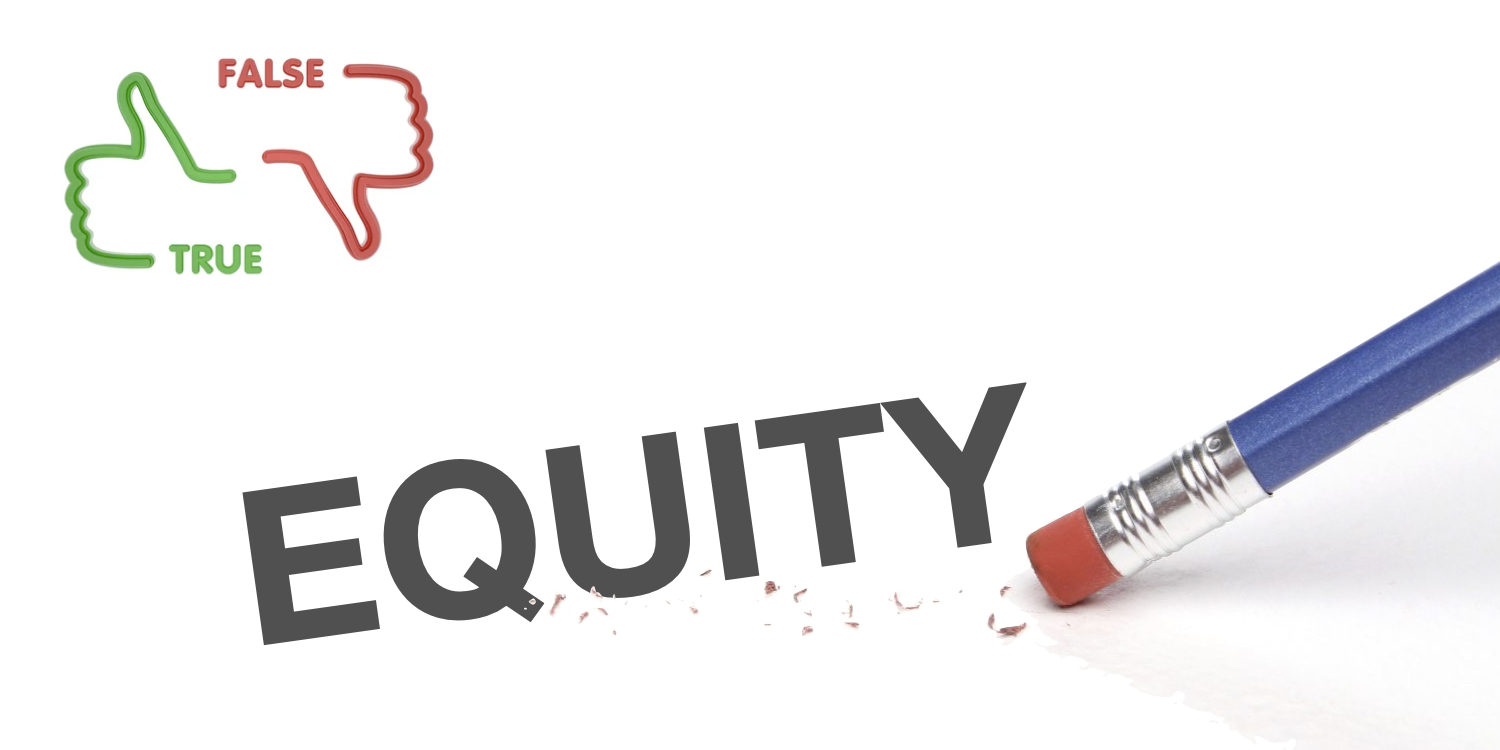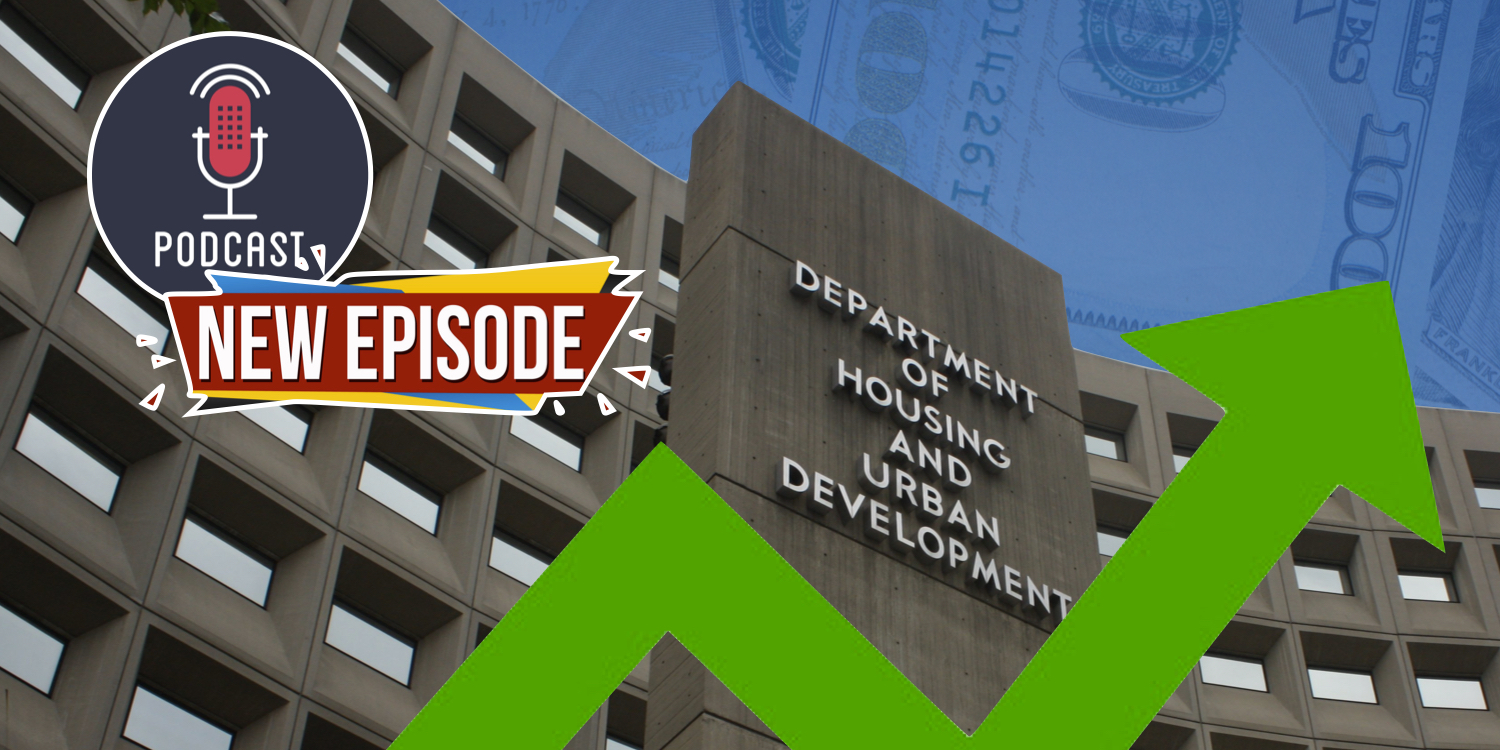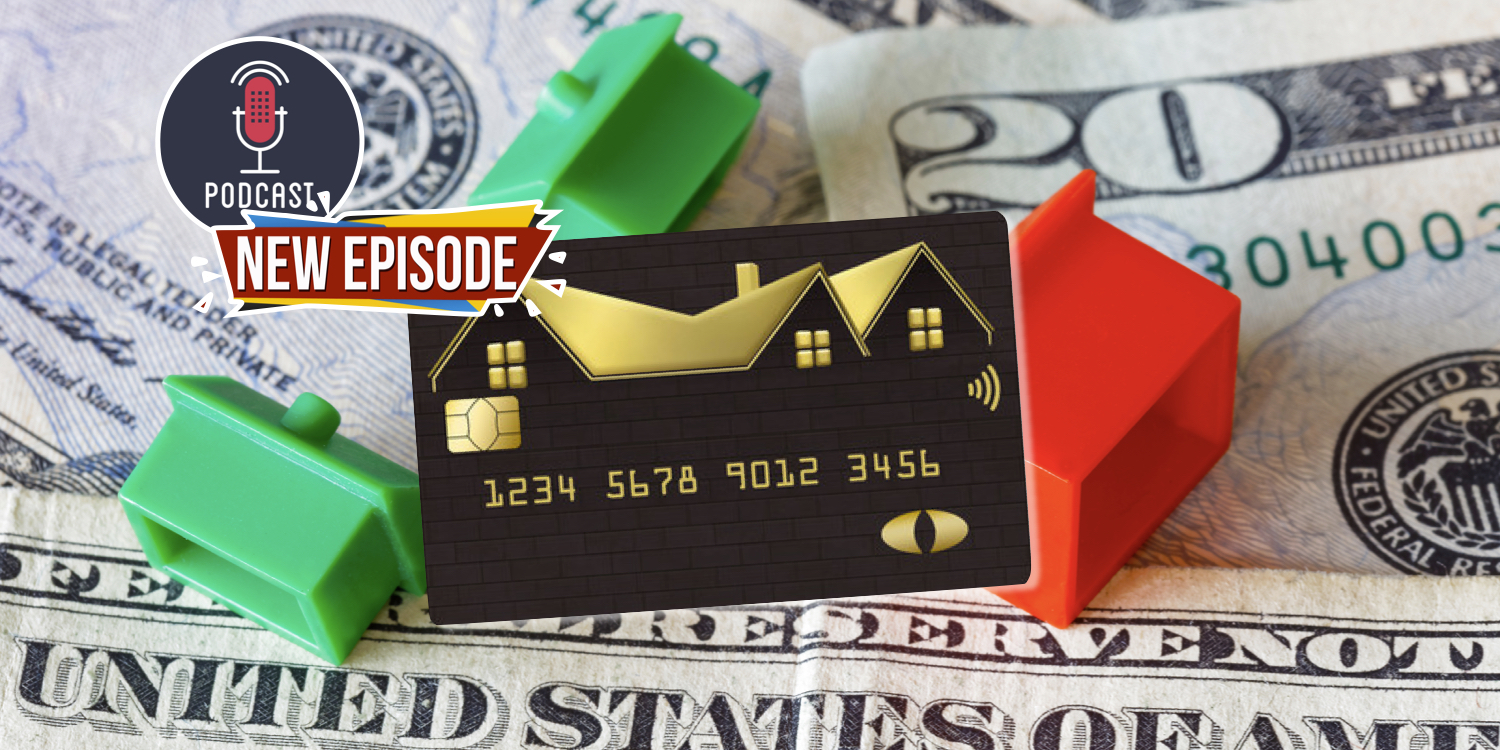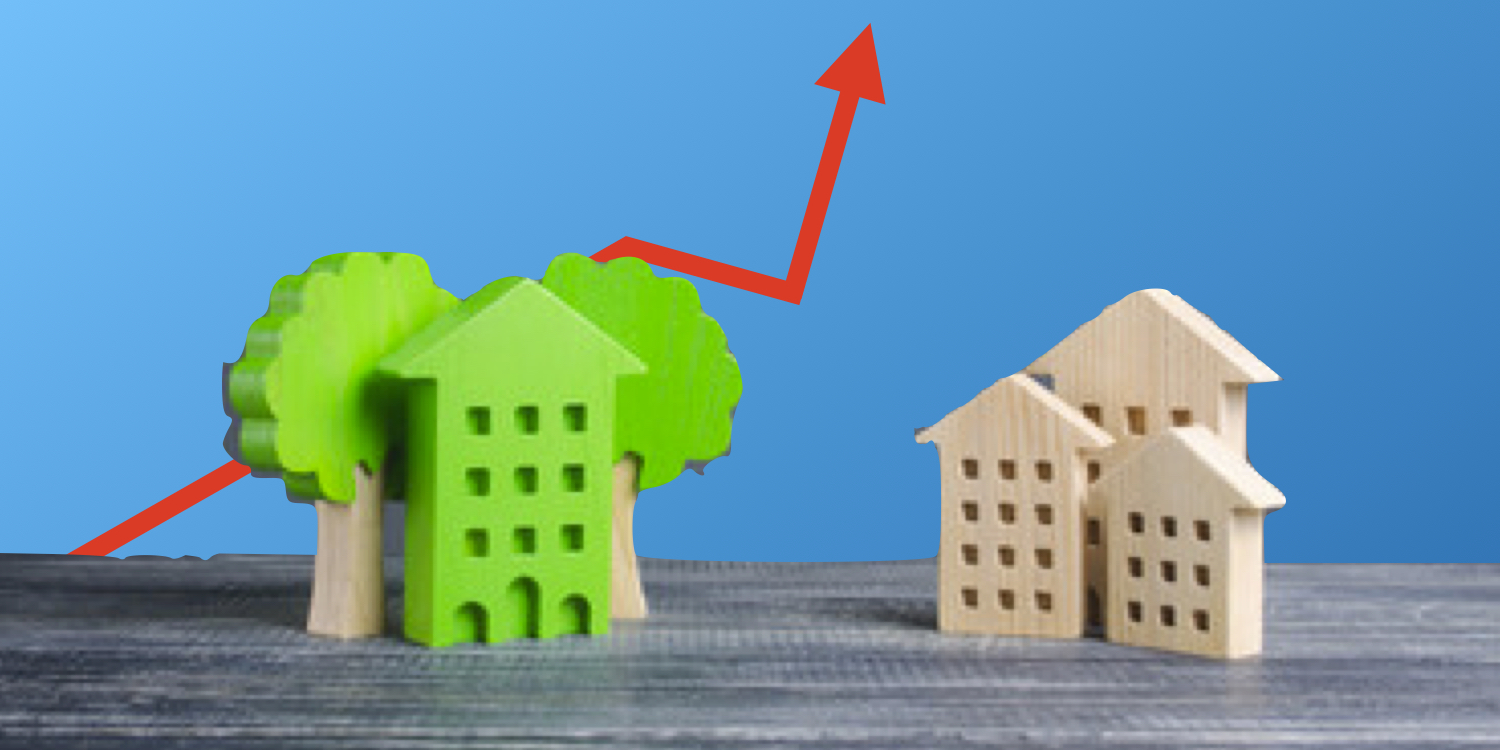There’s a dirty little secret about inflation. It doesn’t harm everyone equally and some actually benefit from it.
Continue readingSenior housing wealth grows as inflation surges
We are likely headed toward an era of historic inflation in the United States. Not the news one wants, especially if they’re retired. However, there’s one safe haven for millions of senior homeowners; their home.
Continue readingRetirees need to face their Financial Fears
Covid-19 isn’t the only pandemic spreading across our nation. Fear and uncertainty are just as contagious. Two particular groups are especially worried- older Americans nearing retirement and those who are already entered their non-working years
Continue readingEquity Erased- It’s not what you think
Equity erased- and no it’s not always a reverse mortgage
Often critics and media pundits disparage the reverse mortgage loan as erasing a homeowner’s accumulated equity. Do reverse mortgages consume accumulated equity? Certainly, when the homeowner is not making payments. Reverse mortgages are negative amortization loans in which unpaid interest is added to the previous month’s principal balance. However, the equity is not ‘erased’ until a triggering event takes place. This week we look at the ways an older homeowner’s equity can actually be erased with or without a reverse mortgage.
Fraud-
[read more]
The first is Fraud- The Asheville Watchdog, a local publication in Asheville North Carolina reports that several elderly Black homeowners were allegedly defrauded by a local attorney and his real estate holdings company. Several homeowners reported being approached shortly after a mortgage or tax foreclosure notice was filed alleging they unknowingly signed deeds releasing interest in the property. In one instance a family received $1,200 only to see the property resold the same day for $45,000. In another case last September a judge returned home to a family after finding the same company obtained the property by fraud.
The next way equity is erased is by foreclosure. Traditional mortgage borrowers who default on their payments stand to lose any remaining equity in the home in a foreclosure. In fact, delinquent borrowers with substantial home equity are most likely to see an expedient foreclosure as the bank stands to recoup some or all of their lost payments.
Loss of employment. The leading cause of foreclosure is the loss of employment and income. Foreclosure trends may be localized based on regional unemployment or business closures.
The loss of a spouse. The loss of a life partner is not only emotionally devastating but can often have catastrophic financial consequences. The common challenges surviving spouses may face are the loss or reduction of pension payments, a reduction of Social Security benefits, or the loss of income if they were still working.
Adjustable-rate loans. Thanks to low fixed-rate mortgages in the wake of the 2008 housing crisis few older homeowners currently have ARMs or adjustable-rate mortgages and that’s good news. Unlike adjustable-rate reverse mortgages where interest rate changes have no impact on the homeowner’s cash flow, traditional ARMs can lead to payment shock when rising interest rates increase the required monthly mortgage payment.
Credit card debt. Sadly, some homeowners prioritize credit card payments over their mortgage payments leading to an eventual foreclosure. This is most unfortunate as some may be able to negotiate payments or file bankruptcy to eliminate their liability with creditors. It’s better to protect the roof over your head instead of worrying about your credit score.
The other ways one can see their equity erased are divorce, overspending, health emergencies, and financial shocks. And speaking of shocks inflation shows no signs of slowing or being ‘transitory’. The increased cost of living for older homeowners on fixed incomes could leave some facing the specter of foreclosure. So do reverse mortgages suddenly erase equity? No. However, they do use a portion of the home’s value and subsequently consume equity over time while the borrower enjoys the benefit of loan proceeds or the elimination of their previously required mortgage payments.
Rather than claiming reverse mortgages erase equity perhaps now is the time to erase misleading statements, hyperbole, and harmful advice that often ignores one’s largest financial asset.
[/read]
The HECM’s 2021 performance likely best 2020
Unable to use the embedded player? Listen here.
EPISODE #695
It’s less about preserving equity and more about cash flow
With millions of first-time homebuyers finding few suitable housing options and tenants enduring the ravages of rent hikes, some are sitting on a mountain of home equity whilst needing a significant boost to their monthly cash flow.
.
Other Stories:
-
HECM is an important part of HUD providing housing stability- MMI fund may show marked improvement
-
How To Avoid Reverse Mortgage Lending Traps
How to tap into your home’s value safely
Unable to use the embedded player? Listen here.
EPISODE #693
Consumer Reports: How to tap into your home’s value safely
Consumer Reports outline several ways a homeowner may tap into their home’s equity safely. Only one choice doesn’t require monthly mortgage payments. .
Other Stories:
-
Reverse Market Insight’s Market Minute
-
Zillow exits homebuying – Home price growth will slow dramatically in 2022 says Core Logic
I won’t live to see my mortgage paid off
Unable to use the embedded player? Listen here.
I’m retired and won’t live to see my mortgage paid off. Should I refinance to lower my monthly payment?
“Is it worth having my home refinanced at a lower, fixed percentage rate and paying closing costs? What other options should I consider?”
.
Other Stories:
-
USA Today: 4 ways to avoid running out of money in retirement
-
The equity release issue: What’s stopping older Aussies from ‘eating their house’?
Podcast E640: U.S. Debt & The Housing Market
Unable to use the embedded player? Listen here.
How U.S. debt influences the housing market
The federal government is setting an unsettling new record in spending. So far this year $9.1 has been spent. One thing is certain: housing prices and U.S. Debt are growing at a record pace
.
Other Stories:
Should they take their winnings off the table?
Taking their winnings off the table:
Are seniors over-invested in their home?
Let’s say in January 80% of your assets were invested in hotel and entertainment stocks that made you a healthy chunk of change. For sake of argument, let’s say these stocks consistently out-performed your expectations. Then came March and the arrival of the novel coronavirus. If you found yourself holding these positions after the pandemic broke you probably got clobbered in the market.
Much like being over-invested in one or two companies, many are over-invested in their home. That’s a point Hometap Equity Partners CEO & Cofounder Jeffrey Glass made in a last month’s RMD virtual event HEQ- the future of home equity in retirement. If the bulk of a client’s wealth was tied up in one stock a financial professional is likely to strongly recommend diversification. “If that were a stock, and you had 60-90% of your net worth tied up in one stock, no matter how much you love that stock, any financial advisor would tell you you’re over-concentrated, particularly since you’re over-concentrated in an asset that’s illiquid,” While Glass’ was speaking in the context of alternate equity products, his analogy nevertheless rings true.
So what about housing wealth?
[read more]
To be frank, home equity is an illusion that exists on paper until it is separated from the home. You can almost still hear the echoes of excited voices twelve years ago boasting of their newfound ‘wealth’ or equity they ‘made’. We all remember how that story ends.
The point is the equity, or value if you prefer’ in the bricks and mortar of a home is neither safe nor guaranteed to be there tomorrow. That leaves older homeowners with two choices to extract equity: sell and ‘right-size’ into a new home at today’s prices or separate a portion of the home’s value and remain in place. The former requires one to uproot themselves and later a tool to extract cash from the roof over their heads. So let’s stop here, right now for just a moment and ask ourselves this question. Will home values continue to rise in 2021? To be honest, we don’t know. There may be indicators of a correction but perhaps we should recall the lyric’s from Blood Sweat & Tears hit ‘Spinning Wheel’ ..” What goes up must come down. Spinning wheel got to go ‘round”. And go ‘round does the housing market go. It’s a cyclical market that ebbs and flows. Many experts see employment as the lynchpin of future real estate values.
All of which leads us to our original question. Should older homeowners be taking some of their winnings or equity off the table? Perhaps. The two hurdles that must be cleared are the fear and misunderstanding surrounding reverse mortgages, and the upfront costs to diversify their ‘equity holdings’. Before diving into the intricacies of how a HECM works it’s best, to begin with, the broad brush strokes. “Do you plan on living in your home for the foreseeable future?” And the bonus question, “Do you believe home values will continue to go up in the next year or two or go down?”. Even if they’re not reading the Wall Street Journal each week most homeowners are generally aware of the real estate market’s performance and more importantly, they’re old enough to remember earlier housing downturns.
So what are their options? You know them well. Besides selling there’s the favorite recommendation of media ‘experts’- a HELOC. Great, but now they’ve got a monthly payment in addition to their existing mortgage if they have one. Sell? The fact is most prefer to age in place? That leaves us with the question- how would you leverage your home’s values, take some of the risks of a fall in home values off the table, and not be saddled with a payment? Correct me if I’m wrong, but that seems to point in one direction- a reverse mortgage. Even more so a Home Equity Conversion Mortgage with a line of credit.
Equity makes great conversation over coffee but it’s meaningless and most importantly vulnerable until it’s separated from the home.
[/read]
Up in the Air: Airline employees face furloughs
Up in the Air
There’s much that’s uncertain in these turbulent times. One group that’s facing looming financial uncertainty is the nation’s airline employees. Airlines are poised to shed tens of thousands of workers as federal aid backstopping the industry stops October 1, 2020. American Airlines and United plan to furlough 19,000 and 16,000 workers respectively. A federal prohibition of airline furloughs and a massive $25 billion cash infusion to cover payroll have delayed the inevitable until the first day of October.
While the Federal Reserve continues to print money at a feverish pace, the truth that is the fiction of ’employment recovery’ is reaching its final chapter. Captain Jetson, an online airline/aviation publication, serves up inside industry information and tips for those employed in domestic air travel. Jetson’s August 22nd column warns airline professionals of the impending deadline and what potential strategies may help ease the financial fallout of unemployment.
When it comes to ‘income matters’ Captain Jetson suggests pursuing one or all of the following plans of action:
- Pursue state unemployment benefits & programs
- Having a working spouse or partner increase their working hours
- Applying for military benefits if applicable
- Consider applying for a reverse mortgage and/or beginning to take Social Security payments

While the age distribution of airline employees is somewhat murky we can safely surmise that there may be a significant number of older workers who did not take an early retirement package earlier this spring who are facing economic uncertainty. Many are longtime homeowners anxious as to how they will afford monthly mortgage payments or find the cash to meet their daily expenses.
Unions representing airline employees are highly-motivated to present members with potential solutions, especially those facing a forced furlough in two short weeks. Despite most airline pilots not being able to fly after age 65, the vast majority of airline personnel are found in ground crews and support staff. Contacting your nearest airline labor union could be the first step in getting in front of members 62 and older who may want to leverage their home to weather a season of unemployment or simply retire altogether.
What other industries in your area are dependent upon federal aid that may expire? What business plan will you develop to help these older workers facing unemployment?
Regardless, now is the time to make your presence known and the powerful financial tool you offer older homeowners- all while home values remain at historic highs and interest rates reach their lowest benchmarks.
Up in the air? Much may be but as Captain Jetson advises industry workers in its column, ‘develop a plan of action- NOW’.
















